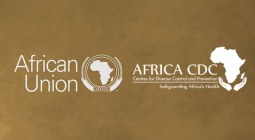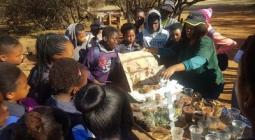Educating Zimbabwe: illegal ‘home schools’ defy lockdown in townships.
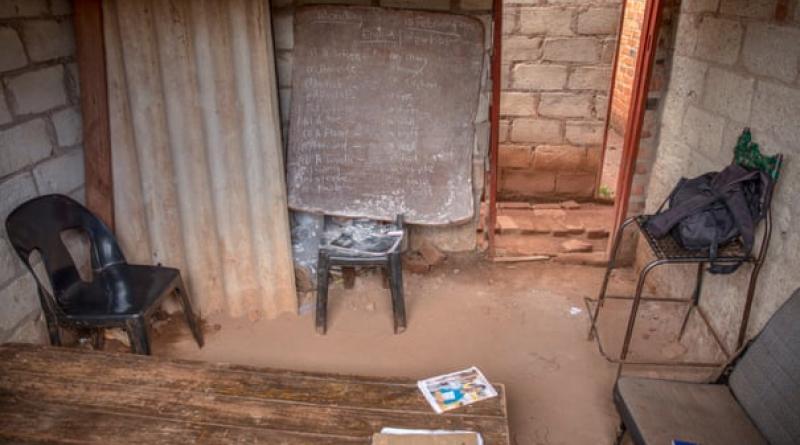
Priced out of online access, poor children are turning to backyard teachers as Covid closes state classrooms.
It’s Friday morning and Help Mabwe is preparing to give the day’s illicit lessons. Round the back of his house the teacher has created a classroom out of some old canvas and some wooden poles.
A few broken chairs and benches, and an ancient chalkboard complete the furniture in Mabwe’s backyard college in Kuwadzana, a township 15km west of central Harare.
Faced with schools being closed indefinitely across Zimbabwe, this garden classroom is the only option for many children and young people in Kuwadzana.
Schools in the country were closed in March 2020. Some began to reopen in October for pupils taking exams, but all were then shut indefinitely in January as the cases of Covid began again to rise.
The closures led to an almost 10% drop in the number of children passing their national grade seven exams last year. More than 80 schools recorded no passes at all.
“The home schools are the answer to the current dilemma that we find ourselves in,” says Mabwe, as he welcomes students arriving for a sociology lecture.
At Mabwe’s home college, students pay $10 (£7.25) a month, while the poorer children, mostly orphans, can study for free, he says.
“There are instances where parents cannot afford lessons. We can have a gentleman’s agreement. There are some children who are orphans, so we take about 10 and teach them for free.
“This is also part of our corporate social responsibility. We are in the community and want to serve the community. We are not driven by money, but we are driven by the need to better lives.”
Some of his students arrive having not eaten. “It is one of the contributing factors to a poor pass rate. I wish I had the resources to feed some of them,” says Mabwe.
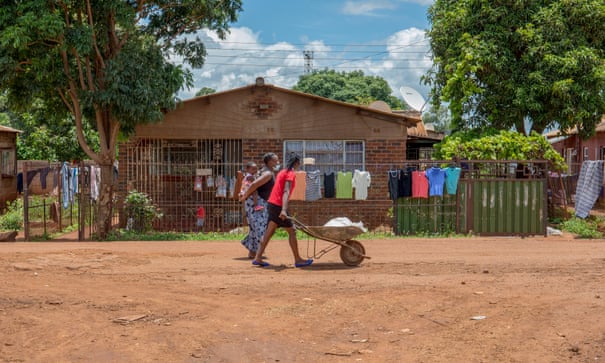
Home schools have sprouted up across Harare’s townships, but the government has warned teachers not to open their own classrooms, saying that these are illegal under lockdown rules. The government has banned gatherings of any kind because of the recent rise in case numbers. Since the pandemic began, Zimbabwe has recorded more than 35,000 coronavirus cases and 1,400 deaths.
Before Covid, the government was already beginning to crack down on teachers establishing private colleges, or charging fees to hold extra classes outside the normal school day to subsidise low wages.
Unregistered private colleges have been subject to frequent raids by the police and council officials. Some officials have demanded bribes to allow them to continue operating, teachers say.
“Despite the setbacks, we are registering good results,” says Mabwe. “We have problems with authorities. The council and educational officials always harass us but at the end of the day we want the children to win. We want education to win.
“We are passionate about teaching. There are several teachers, teaching as backyard schools but they are producing good results.”
During lockdown, the government wants pupils to learn through online classes and radio lectures, but internet access is considered a luxury and costs are prohibitive for poorer families.
“Trying to conduct online lessons does not work,” says Moud Maenzanise, a teacher who has transformed her veranda into a teaching area for five students. “At times, a teacher needs physical contact with a student because [otherwise] you will be producing a half-baked student.
“There is a need to assess the physiological capacity of the student and online lessons do not provide for that. We need to build the whole person, but we cannot do that online. Online lessons are for the affluent north, but here in the ghetto parents cannot afford that.”
She adds: “We are always making sure that we are improving. We would like the government to give us the recognition, instead of having constant running battles with them. It’s an issue of over over-regulation.”
Mernard Mapuke, who has turned his garage into a makeshift classroom, says thousands of children in townships risk dropping out of school.
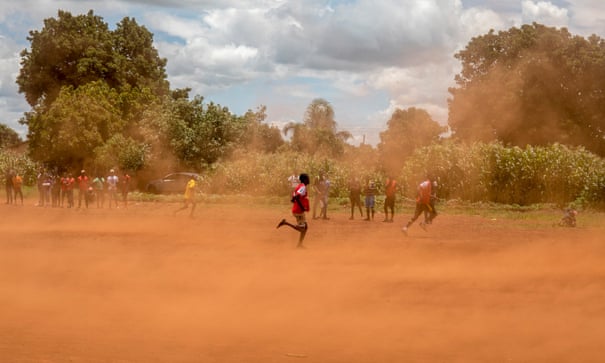
“Each time I talk to some of these children, I can tell they are no longer interested in school. The only solution is to help them in their homes while we wait to return to school. If not, we are breeding a very dangerous society,” says Mapuke.
“There is absolute poverty here … but we want the ghetto child to understand that education will end endemic poverty, which is associated with the ghetto. We always instil in them a culture of believing in themselves. Therefore, we need to conduct these lessons,” he says.
But the president of the Progressive Teachers Union of Zimbabwe (PTUZ), Raymond Majongwe, described the schoolteachers setting up home schools as “bad apples” who were exposing children to Covid-19.
“The real tragedy is that quality assurance becomes a problem in these schools. But a vacuum has been created by the closure of schools, so people are responding to that. Even bad apples find themselves also teaching,” says Majongwe.
“We need proper systems. This is the reason why hospitals cannot just open everywhere, the education system should be like that also. These backyard schools cannot be the solution.”
Majongwe urged the government to address teachers’ grievances over pay and conditions to ensure better exam results this year.
Teachers in Zimbabwe are paid the equivalent of $50 a month. Last year, they downed tools over pay and a lack of personal protective equipment at schools.
Mabwe has vowed to continue running the college in the tent at his home. “These backyard schools are their pupils’ only hope.”
18 February 2021
The Guardian


